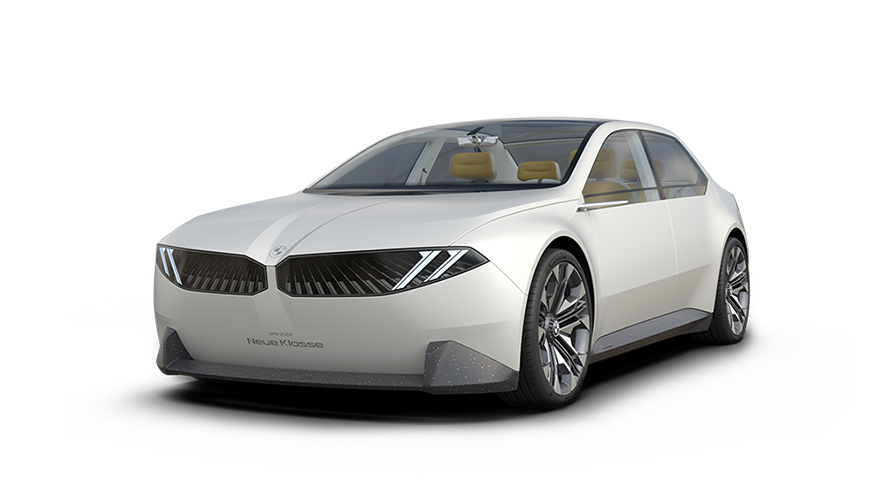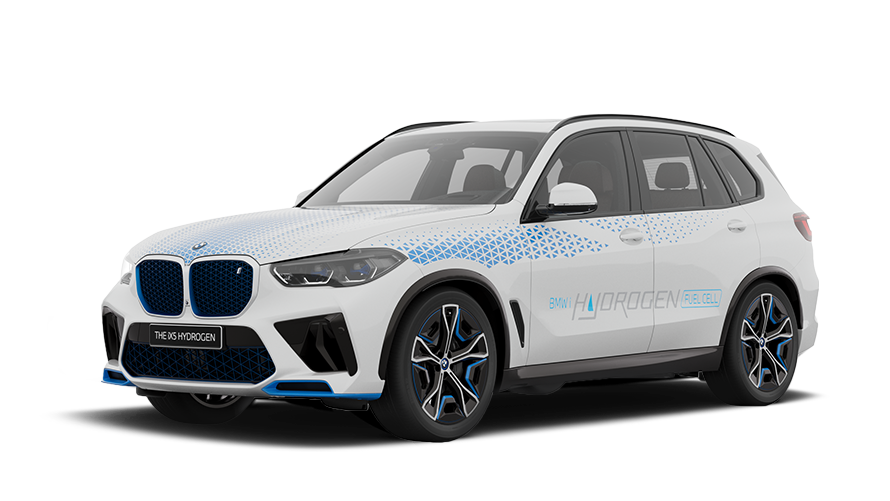Discover and configure all BMW models.
Explore our latest car models to find the smart technology, innovative features and engine type that’s right for you. Simply compare, build and locate your Ultimate Driving Machine.
Offer
Petrol
-
The BMW X1 sDrive18i from $189^ per week at a $66,500 RRP*.
Offer based on new and demo BMW X1sDrive18i with a RRP of $66,500.00, fixed interest rate of 6.99% p.a. on a 60 month BMW Standard Loan contract (excludes Full Circle product), with an initial customer deposit / trade in of 14% of RRP with maximum balloon of 40% of RRP with vehicle financed and delivered by 31.12.2025. 60 monthly payments of $807.74 and a balloon payment of $26,600.00 at month 60. Total amount payable is $84,374.45, which includes an establishment fee of $275, PPSR of $10.35, dealer origination fee of $200. Weekly payment means the estimate of the weekly cost to you for budgeting purposes of the monthly payments required for this monthly finance product. BMW Finance terms, conditions and standard lending criteria apply. Not available in conjunction with any other offer. BMW Finance reserves the right to vary, withdraw or extend this offer.
Full electric
Electric
-
From $169,900
Illustrations show optional equipment at an additional cost. The prices given are non-binding recommendations from the manufacturer including 19% VAT excluding transfer costs. Changes and omissions excepted. Binding price information can be obtained from your BMW partner.
Electric
Electric
-
From $96,900
Illustrations show optional equipment at an additional cost. The prices given are non-binding recommendations from the manufacturer including 19% VAT excluding transfer costs. Changes and omissions excepted. Binding price information can be obtained from your BMW partner.
Electric
-
From $289,500
Illustrations show optional equipment at an additional cost. The prices given are non-binding recommendations from the manufacturer including 19% VAT excluding transfer costs. Changes and omissions excepted. Binding price information can be obtained from your BMW partner.
Electric
-
From $124,900
Illustrations show optional equipment at an additional cost. The prices given are non-binding recommendations from the manufacturer including 19% VAT excluding transfer costs. Changes and omissions excepted. Binding price information can be obtained from your BMW partner.
Plug-in hybrid
Hybrid
-
From $305,900
Illustrations show optional equipment at an additional cost. The prices given are non-binding recommendations from the manufacturer including 19% VAT excluding transfer costs. Changes and omissions excepted. Binding price information can be obtained from your BMW partner.
Hybrid
-
From $176,900
Illustrations show optional equipment at an additional cost. The prices given are non-binding recommendations from the manufacturer including 19% VAT excluding transfer costs. Changes and omissions excepted. Binding price information can be obtained from your BMW partner.
Hybrid
-
From $118,900
Illustrations show optional equipment at an additional cost. The prices given are non-binding recommendations from the manufacturer including 19% VAT excluding transfer costs. Changes and omissions excepted. Binding price information can be obtained from your BMW partner.
Hybrid
-
From $90,600
Illustrations show optional equipment at an additional cost. The prices given are non-binding recommendations from the manufacturer including 19% VAT excluding transfer costs. Changes and omissions excepted. Binding price information can be obtained from your BMW partner.
Hybrid
-
From $238,400
Illustrations show optional equipment at an additional cost. The prices given are non-binding recommendations from the manufacturer including 19% VAT excluding transfer costs. Changes and omissions excepted. Binding price information can be obtained from your BMW partner.
Hybrid
-
From $159,899
Illustrations show optional equipment at an additional cost. The prices given are non-binding recommendations from the manufacturer including 19% VAT excluding transfer costs. Changes and omissions excepted. Binding price information can be obtained from your BMW partner.
Hybrid
-
From $244,901
Illustrations show optional equipment at an additional cost. The prices given are non-binding recommendations from the manufacturer including 19% VAT excluding transfer costs. Changes and omissions excepted. Binding price information can be obtained from your BMW partner.
Hybrid
-
From $248,900
Illustrations show optional equipment at an additional cost. The prices given are non-binding recommendations from the manufacturer including 19% VAT excluding transfer costs. Changes and omissions excepted. Binding price information can be obtained from your BMW partner.
Hybrid
-
From $114,499
Illustrations show optional equipment at an additional cost. The prices given are non-binding recommendations from the manufacturer including 19% VAT excluding transfer costs. Changes and omissions excepted. Binding price information can be obtained from your BMW partner.
Hybrid
-
From $50,300
Illustrations show optional equipment at an additional cost. The prices given are non-binding recommendations from the manufacturer including 19% VAT excluding transfer costs. Changes and omissions excepted. Binding price information can be obtained from your BMW partner.
Petrol
Petrol
-
From $238,800
Illustrations show optional equipment at an additional cost. The prices given are non-binding recommendations from the manufacturer including 19% VAT excluding transfer costs. Changes and omissions excepted. Binding price information can be obtained from your BMW partner.
Petrol
-
From $253,900
Illustrations show optional equipment at an additional cost. The prices given are non-binding recommendations from the manufacturer including 19% VAT excluding transfer costs. Changes and omissions excepted. Binding price information can be obtained from your BMW partner.
Petrol
-
From $205,899
Illustrations show optional equipment at an additional cost. The prices given are non-binding recommendations from the manufacturer including 19% VAT excluding transfer costs. Changes and omissions excepted. Binding price information can be obtained from your BMW partner.
Petrol
-
From $247,900
Illustrations show optional equipment at an additional cost. The prices given are non-binding recommendations from the manufacturer including 19% VAT excluding transfer costs. Changes and omissions excepted. Binding price information can be obtained from your BMW partner.
Petrol
-
From $97,900
Illustrations show optional equipment at an additional cost. The prices given are non-binding recommendations from the manufacturer including 19% VAT excluding transfer costs. Changes and omissions excepted. Binding price information can be obtained from your BMW partner.
Petrol
-
From $150,900
Illustrations show optional equipment at an additional cost. The prices given are non-binding recommendations from the manufacturer including 19% VAT excluding transfer costs. Changes and omissions excepted. Binding price information can be obtained from your BMW partner.
Petrol
-
From $109,900
Illustrations show optional equipment at an additional cost. The prices given are non-binding recommendations from the manufacturer including 19% VAT excluding transfer costs. Changes and omissions excepted. Binding price information can be obtained from your BMW partner.
Petrol
-
From $76,100
Illustrations show optional equipment at an additional cost. The prices given are non-binding recommendations from the manufacturer including 19% VAT excluding transfer costs. Changes and omissions excepted. Binding price information can be obtained from your BMW partner.
Petrol
-
From $123,900
Illustrations show optional equipment at an additional cost. The prices given are non-binding recommendations from the manufacturer including 19% VAT excluding transfer costs. Changes and omissions excepted. Binding price information can be obtained from your BMW partner.
Petrol
-
From $199,400
Illustrations show optional equipment at an additional cost. The prices given are non-binding recommendations from the manufacturer including 19% VAT excluding transfer costs. Changes and omissions excepted. Binding price information can be obtained from your BMW partner.
Petrol
-
From $92,900
Illustrations show optional equipment at an additional cost. The prices given are non-binding recommendations from the manufacturer including 19% VAT excluding transfer costs. Changes and omissions excepted. Binding price information can be obtained from your BMW partner.
Petrol
-
From $139,400
Illustrations show optional equipment at an additional cost. The prices given are non-binding recommendations from the manufacturer including 19% VAT excluding transfer costs. Changes and omissions excepted. Binding price information can be obtained from your BMW partner.
Petrol
-
From $195,200
Illustrations show optional equipment at an additional cost. The prices given are non-binding recommendations from the manufacturer including 19% VAT excluding transfer costs. Changes and omissions excepted. Binding price information can be obtained from your BMW partner.
Petrol
-
From $199,600
Illustrations show optional equipment at an additional cost. The prices given are non-binding recommendations from the manufacturer including 19% VAT excluding transfer costs. Changes and omissions excepted. Binding price information can be obtained from your BMW partner.
Petrol
-
From $118,900
Illustrations show optional equipment at an additional cost. The prices given are non-binding recommendations from the manufacturer including 19% VAT excluding transfer costs. Changes and omissions excepted. Binding price information can be obtained from your BMW partner.
Petrol
-
From $149,500
Illustrations show optional equipment at an additional cost. The prices given are non-binding recommendations from the manufacturer including 19% VAT excluding transfer costs. Changes and omissions excepted. Binding price information can be obtained from your BMW partner.
Petrol
-
From $68,900
Illustrations show optional equipment at an additional cost. The prices given are non-binding recommendations from the manufacturer including 19% VAT excluding transfer costs. Changes and omissions excepted. Binding price information can be obtained from your BMW partner.
Petrol
-
From $97,900
Illustrations show optional equipment at an additional cost. The prices given are non-binding recommendations from the manufacturer including 19% VAT excluding transfer costs. Changes and omissions excepted. Binding price information can be obtained from your BMW partner.
Diesel
Diesel
-
From $188,900
Illustrations show optional equipment at an additional cost. The prices given are non-binding recommendations from the manufacturer including 19% VAT excluding transfer costs. Changes and omissions excepted. Binding price information can be obtained from your BMW partner.
Diesel
-
From $166,900
Illustrations show optional equipment at an additional cost. The prices given are non-binding recommendations from the manufacturer including 19% VAT excluding transfer costs. Changes and omissions excepted. Binding price information can be obtained from your BMW partner.
Diesel
-
From $155,900
Illustrations show optional equipment at an additional cost. The prices given are non-binding recommendations from the manufacturer including 19% VAT excluding transfer costs. Changes and omissions excepted. Binding price information can be obtained from your BMW partner.
Diesel
-
From $111,900
Illustrations show optional equipment at an additional cost. The prices given are non-binding recommendations from the manufacturer including 19% VAT excluding transfer costs. Changes and omissions excepted. Binding price information can be obtained from your BMW partner.
Diesel
-
From $101,500
Illustrations show optional equipment at an additional cost. The prices given are non-binding recommendations from the manufacturer including 19% VAT excluding transfer costs. Changes and omissions excepted. Binding price information can be obtained from your BMW partner.




